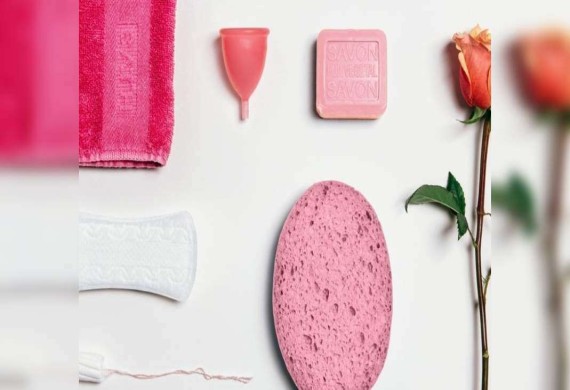
Time to Find Healthier Alternatives to Harm Causing Conventional Sanitary Pads
By: WE Staff
According to a recent study, several chemicals found in sanitary pads may raise the risk of cancer and infertility among women. Here is a list of alternative menstrual hygiene products that are safer for use.
Women of all ages use sanitary pads on a regular basis. There is growing concern, however, that the chemicals in sanitary pads may be harmful to women's health.
According to some studies, the chemicals in sanitary pads can leach into the body and disrupt hormones, potentially leading to infertility and cancer. There is also concern that the pads will serve as a breeding ground for bacteria, potentially leading to infections.While more research is needed to confirm these risks, women should be aware of the potential risks of using sanitary pads. If you are concerned about the risks, you may have to consider using alternative menstrual products, such as menstrual cups or organic pads.
The most widely used sanitary pads in India by women may pose some major health risks, according to a recent study that horrified Nation. According to reports, the chemicals present in these sanitary napkins have the potential to be extremely dangerous and may raise women's risks for cancer and infertility.
Sanitary Pads may make Women more Susceptible to Cancer & Infertility
According to reports, a study by the non-profit organisation Toxic Link, based in New Delhi, discovered that some of the most well-known brands of sanitary pads manufactured in India include chemicals that may raise your risk of cancer and infertility. The researchers looked at 10 various kinds of sanitary pads made in India, both organic and inorganic.They discovered that the most frequently utilized chemicals in these pads are phthalates and volatile organic compounds (VOCs).
The majority of girls and women use pads, therefore this will alarm them, says Dr. Surabhi Siddhartha, Consultant Obstetrician & Gynecologist, Motherhood Hospital, Kharghar, Mumbai. According to the research, phthalates and volatile organic compounds (VOCs) present in minute amounts in each sample have the potential to develop into malignant cells. Women can have issues if the toxins enter their bodies. Infertility is a well-known side effect of the pads.
The Investigation looked at Ten Different Pad Brands
According to an article by a leading Indian magazine, the examination looked at ten different pad brands.
The NGO is a member of the International Pollutants Elimination Network. The samples that were tested appeared to contain phthalate and volatile organic compound residues (VOCs). Cancerous cells can be created by either contaminant. Certain phthalates are restricted by European law.
According to Dr. Amit, one of the investigators and the programme coordinator at the environmental NGO Toxics Link, which carried out the study, "It is shocking to find numerous harmful chemicals in commonly available sanitary products, including toxic chemicals like carcinogens, reproductive toxins, endocrine disruptors, and allergens."
So, What one can Replace Sanitary Pads with?
Even though women in India use sanitary pads the most and consider them to be a comfortable alternative, they don't appear to be the safest. This does not, however, imply that you should resume using cloth or newspapers during your period. "It is unhealthy and makes women prone to other illnesses," Dr. Siddhartha cautions.
Here are a few options to your conventional Pads that you might want to take into account.
Menstrual Cup
The tiny, bendable cup has the shape of a funnel and is constructed of silicone and rubber. The device is inserted into the vulva to capture the flow. It is reusable and offers leak-free security for up to 12 hours. One cup is supposed to last for 10 years, making them both cost-effective and environmentally friendly.
When you get the hang of using a menstrual cup, you'll find that it is not only comfortable but also quite gentle on the body. At first, they could seem messy and difficult to insert.
Cloth Pads
Cloth pads have a similar mechanism to disposable ones, but they are comprised of layers of cotton that are covered with a washable, reusable waterproof fabric. They are lighter to carry, pleasant, and environmentally beneficial. It also removes the possibility of toxic shock syndrome, making it one of the healthiest choices (TSS).
Period Panties
Can it get much better than pants with built-in period protection that can be worn like regular undies? This alternative is much more cosy, user- and environmentally friendly, and it has multiple layers to stop leaks. For women with heavy flow, it is the ideal choice. They come in a broad variety of shapes, sizes, materials, and holding capacities and are reusable, washable, and durable.
Menstrual Sponges
These natural, renewable resources can be utilised as an alternative to tampons and are also referred to as Sea Sponge Tampons or Period Sponges. They are ocean-derived, all-natural sea sponges that can be used again for up to six months. They are free of synthetic materials, chemicals, bleach, chlorine, scent, and dyes.
Menstrual Disc
The disc is put into the vulva to collect period blood similarly to the menstrual cup, however it is different in shape and positioning. The menstrual disc is located at the vaginal fornix, which is further down the vaginal canal than cups and tampons are. It provides protection for up to 12 hours and has a five-tampon capacity. It could initially seem challenging to insert the disc, but it's lot safer and more dependable if you get the hang of it.






